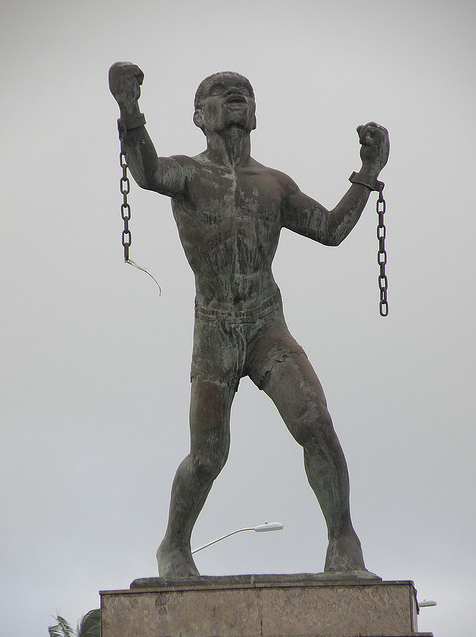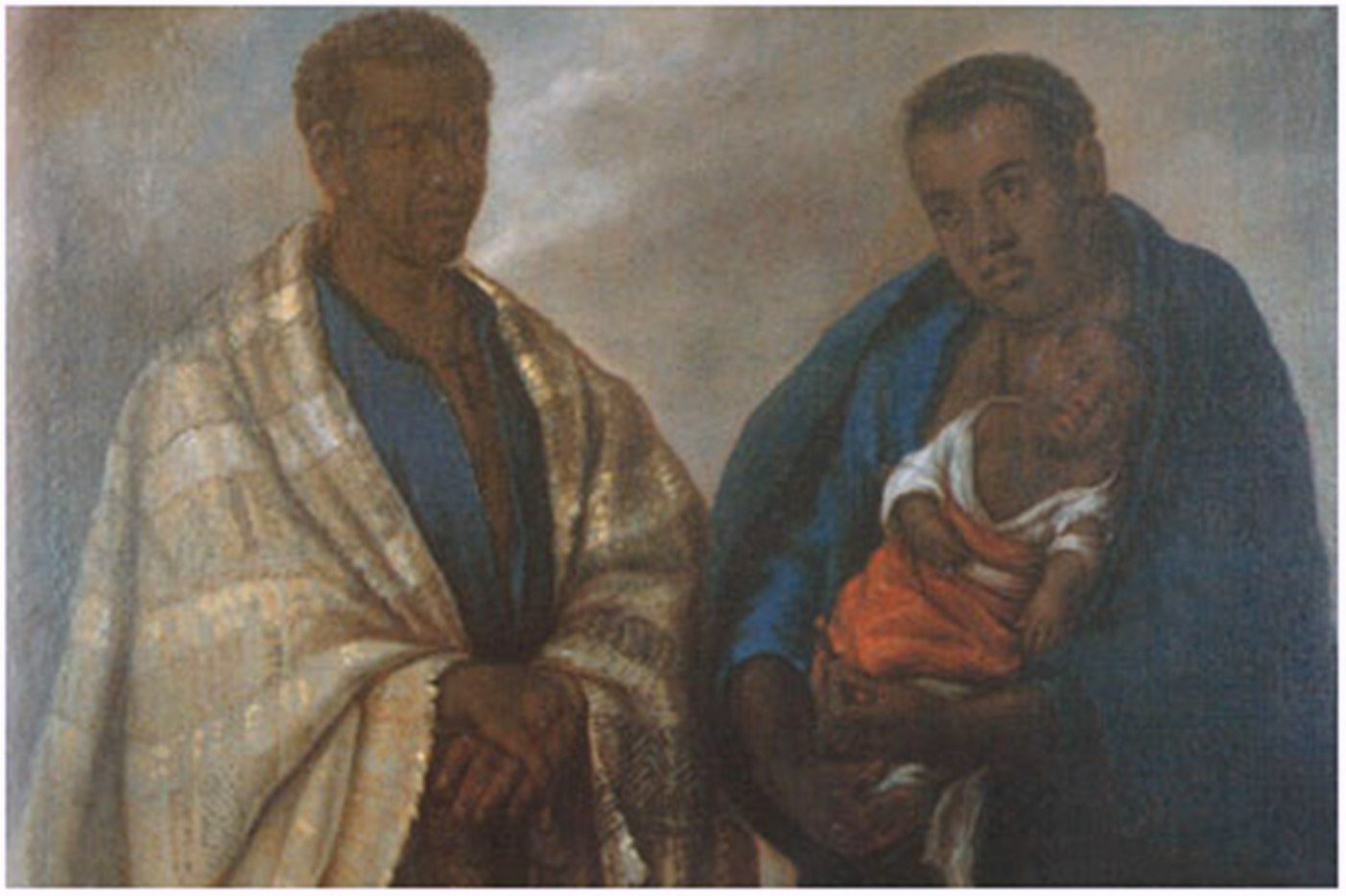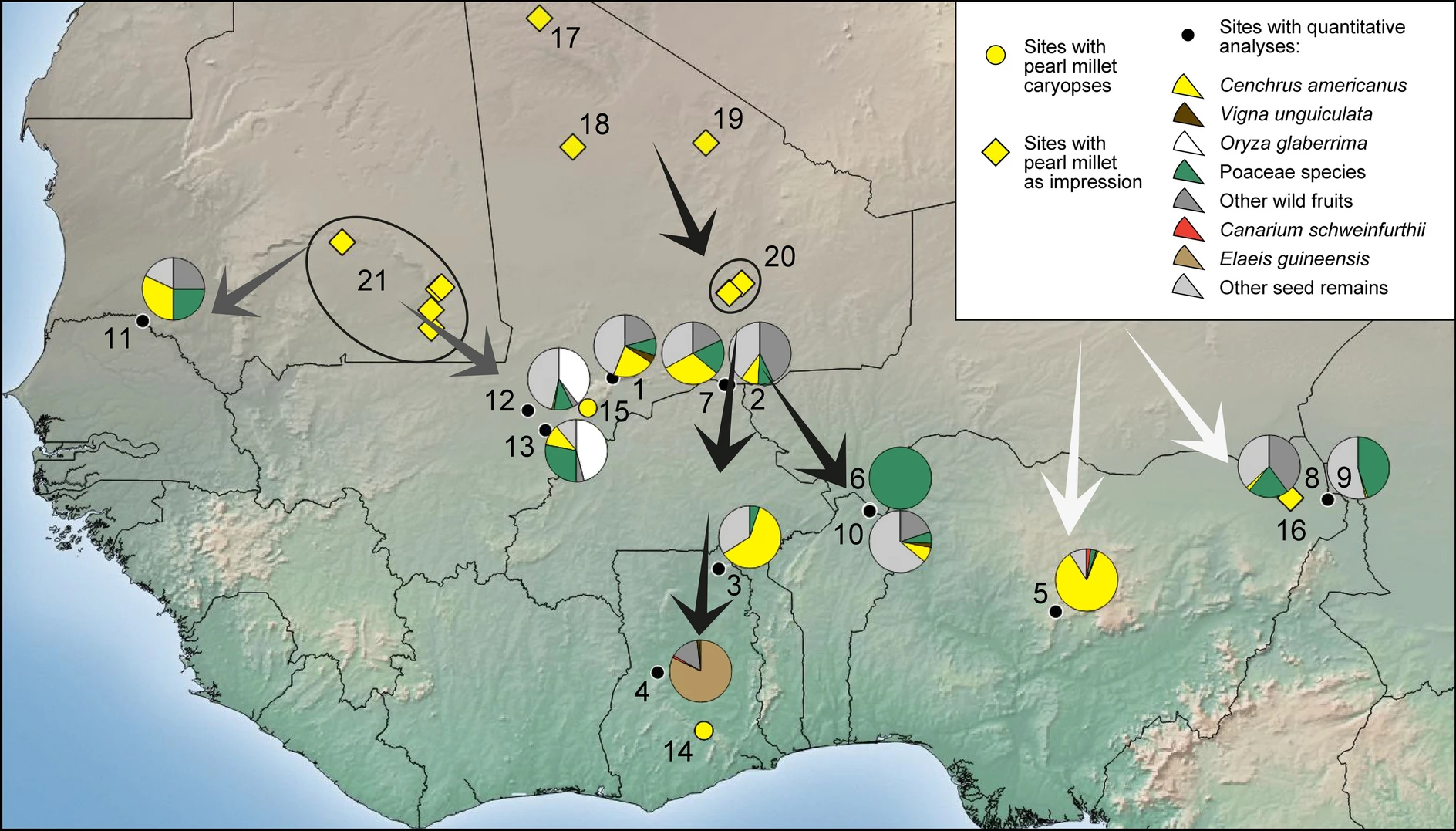|
Afro-Barbadian
Black Barbadians or Afro-Barbadians are Barbados, Barbadians of entirely or predominantly Black people, African descent. 92.4% of Barbados's population is black and 3.1% is multiracial people, multiracial, based on estimates in 2010. Origins Most of the enslaved Africans brought to Barbados were from the Bight of Biafra (62,000 Africans), the Gold Coast (region), Gold Coast (59,000 Africans), and the Bight of Benin (45,000 Africans).This citation is brokeAfrican origins of the slaves from British and former British Antilles/ref> Other African slaves came from Central Africa (29,000 slaves), Senegambia (14,000 Africans), the Windward Coast (13,000 slaves) and from Sierra Leone (9,000 slaves). Africans from the Bight of Biafra were primarily Igbo people in the Atlantic slave trade, Igbo, Ibibio people, Ibibio and Efik people, Efik; Africans from the Gold Coast were primarily Akan people, Akan; Africans from the Bight of Benin were primarily Yoruba, Ewe people, Ewe and Fon peop ... [...More Info...] [...Related Items...] OR: [Wikipedia] [Google] [Baidu] |
Barbados
Barbados, officially the Republic of Barbados, is an island country in the Atlantic Ocean. It is part of the Lesser Antilles of the West Indies and the easternmost island of the Caribbean region. It lies on the boundary of the South American Plate, South American and Caribbean Plate, Caribbean plates. Its capital and largest city is Bridgetown. Inhabited by Island Caribs, Kalinago people since the 13th century, and prior to that by other Indigenous peoples of the Americas, Indigenous peoples, Barbados was claimed for the Crown of Castile by Spanish navigators in the late 15th century. It first appeared on a Spanish map in 1511. The Portuguese Empire claimed the island between 1532 and 1536, but abandoned it in 1620 with their only remnants being the introduction of wild boars intended as a supply of meat whenever the island was visited. An Kingdom of England, English ship, the ''Olive Blossom'', arrived in Barbados on 14 May 1625; its men took possession of the island in the n ... [...More Info...] [...Related Items...] OR: [Wikipedia] [Google] [Baidu] |
Afro-Caribbean People
Afro-Caribbean or African Caribbean people are Caribbean people who trace their full or partial ancestry to Sub-Saharan Africa. The majority of the modern Afro-Caribbean people descend from the Africans (primarily from West and Central Africa) taken as slaves to colonial Caribbean via the trans-Atlantic slave trade between the 15th and 19th centuries to work primarily on various sugar plantations and in domestic households. Other names for the ethnic group include Black Caribbean, Afro- or Black West Indian, or Afro- or Black Antillean. The term West Indian Creole has also been used to refer to Afro-Caribbean people, as well as other ethnic and racial groups in the region, though there remains debate about its use to refer to Afro-Caribbean people specifically. The term Afro-Caribbean was not coined by Caribbean people themselves but was first used by European Americans in the late 1960s. People of Afro-Caribbean descent today are largely of West African and Central African ance ... [...More Info...] [...Related Items...] OR: [Wikipedia] [Google] [Baidu] |
Bajan Creole
Bajan ( ), or Bajan Creole, is an English-based creole language with West/Central African and British influences spoken on the Caribbean island of Barbados. Bajan is primarily a spoken language, meaning that in general, standard English is used in print, in the media, in the judicial system, in government, and in day-to-day business, while Bajan is reserved for less formal situations, in music, or in social commentary. Ethnologue reports that, as of 2018, 30,000 Barbadians were native English speakers, while 260,000 natively spoke Bajan. Languages Bajan is the Caribbean creole with grammar that most resembles Standard English. There is academic debate on whether its creole features are due to an earlier pidgin state or to some other reason, such as contact with neighbouring English-based creole languages. Due to emigration to the Province of Carolina, Bajan has influenced American English and the Gullah language spoken in the Carolinas. Regionally, Bajan has ties to Belizean K ... [...More Info...] [...Related Items...] OR: [Wikipedia] [Google] [Baidu] |
African Diaspora
The African diaspora is the worldwide collection of communities descended from List of ethnic groups of Africa, people from Africa. The term most commonly refers to the descendants of the native West Africa, West and Central Africans who were slavery, enslaved and shipped to the Americas via the Atlantic slave trade between the 16th and 19th centuries, with their largest populations in Brazil, the United States, and Haiti. The term can also be used to refer to Demographics of Africa, African descendants who immigrated to other parts of the world. Scholars identify "four circulatory phases" of this migration out of Africa. The phrase ''African diaspora'' gradually entered common usage at the turn of the 21st century. The term ''diaspora'' originates from the Greek (''diaspora'', "scattering") which gained popularity in English in reference to the Jewish diaspora before being more broadly applied to other populations. Less commonly, the term has been used in scholarship to refe ... [...More Info...] [...Related Items...] OR: [Wikipedia] [Google] [Baidu] |
Multiracial People
The term multiracial people refers to people who are mixed with two or more races (human categorization), races and the term multi-ethnic people refers to people who are of more than one ethnicity, ethnicities. A variety of terms have been used both historically and presently for multiracial people in a variety of contexts, including ''multiethnic'', ''polyethnic'', occasionally ''bi-ethnic'', ''biracial'', ''mixed-race'', ''Métis'', ''Muladí, Muwallad'', ''Melezi'', ''Coloureds, Coloured'', ''Dougla people, Dougla'', ''half-caste'', ''Euronesian, ʻafakasi'', ''mulatto'', ''mestizo'', ''Wiktionary:mutt, mutt'', ''Melungeon'', ''quadroon'', ''Quadroon, octoroon'', ''Quadroon#Racial classifications, griffe'', ''sacatra'', ''zambo, sambo/zambo'', ''Indo people, Eurasian'', ''hapa'', ''hāfu'', ''Garifuna'', ''pardo'', and ''Gurans (Transbaikal people), Gurans''. A number of these once-acceptable terms are now considered Offensive language, offensive, in addition to those that were ... [...More Info...] [...Related Items...] OR: [Wikipedia] [Google] [Baidu] |
Sierra Leone
Sierra Leone, officially the Republic of Sierra Leone, is a country on the southwest coast of West Africa. It is bordered to the southeast by Liberia and by Guinea to the north. Sierra Leone's land area is . It has a tropical climate and environments ranging from savannas to rainforests. As of the 2023 census, Sierra Leone has a population of 8,460,512. Freetown is its capital and largest city. Sierra Leone is a presidential republic, with a unicameral parliament and a directly elected president. It is a secular state. Its Constitution of Sierra Leone, constitution provides for the separation of state and religion and freedom of conscience. Muslims constitute three-quarters of the population, and there is a significant Christian minority. Notably, religious tolerance is very high. Sierra Leone's current territorial configuration was established in two phases: in 1808, the coastal Sierra Leone Colony and Protectorate, Sierra Leone Colony was founded as a place to resettle retu ... [...More Info...] [...Related Items...] OR: [Wikipedia] [Google] [Baidu] |
Igbo People In The Atlantic Slave Trade
The Igbo of Igboland (in present-day Nigeria) became one of the principal ethnic groups to be enslaved during the Atlantic slave trade. An estimated 14.6% of all enslaved people were taken from the Bight of Biafra, a bay of the Atlantic Ocean that extends from the Nun outlet of the Niger River (Nigeria) to Limbe (Cameroon) to Cape Lopez (Gabon) between 1650 and 1900. The Bight's major slave trading ports were located in Bonny and Calabar. History The majority of enslaved Igbo were kidnapped during village raids. The journey for enslaved Igbo often began in the ancient Cave Temple that was located in Arochukwu Kingdom. During this period, the three Igbo Kingdoms followed the same culture and religion, yet tended to operate very differently from each other. The Kingdom of Nri and the Independent Igbo States (confederation of independently ruled Igbo states) did not practice slavery, and enslaved people from neighbouring lands would often flee to these kingdoms in order to b ... [...More Info...] [...Related Items...] OR: [Wikipedia] [Google] [Baidu] |
Ibibio People
The Ibibio people ( ), also known as Ibom People or Ibom are a coastal people in southern Nigeria. They are mostly found in Akwa Ibom State, Akwa Ibom, Cross River State, Cross River, and the Eastern part of Abia State. During the Colonial Nigeria, colonial period in Nigeria, the Ibibio Union asked for recognition by the British Empire, British as a sovereign nation. The Anaang people, Annang, Ekid, Oron people, Oron and Ibeno share personal names, culture, and traditions with the Ibibio, and speak closely related varieties (dialects) of Ibibio-Efik, Ibibio that are more or less mutually intelligible. The Ekpo Masquerades, Ekpo and societies are a significant part of the Ibibio political system. They use a variety of masks to execute social control. Body art plays a major role in Ibibio art. Origin and history The predominant paternal haplogroup among the Ibibio is Haplogroup E-M2, E1b1a1-M2. The ancestors of the Ibibio originally came from Northeast Africa and moved around the ... [...More Info...] [...Related Items...] OR: [Wikipedia] [Google] [Baidu] |
Efik People
The Efik are an ethnic group located primarily in southern Nigeria, and western Cameroon. Within Nigeria, the Efik can be found in the present-day Cross River State and Akwa Ibom state. The Efik speak the Efik language which is a member of the Benue–Congo languages, Benue–Congo subfamily of the Niger-Niger–Congo languages, Congo language group. The Efik refer to themselves as Efik Eburutu, Ifa Ibom, Eburutu and Iboku.#refSimmons1958, Simmons, p.11 The bulk of the Efiks can be found in Calabar and the southern part of Cross River State. Prior to 1905, Old Calabar was a term used to describe the Efik settlements of Duke Town, Creek Town, Old town, Cobham town, Henshaw town, Adiabo and Mbiabo (consisting of Mbiabo edere, Mbiabo Ikot Offiong and Mbiabo Ikoneto).#refCotton1905, Cotton, p.302 The Efik have also been referred to as "Calabar people" in historical literature. The term "Calabar people" was particularly popular prior to the nineteenth century and was synonymous with th ... [...More Info...] [...Related Items...] OR: [Wikipedia] [Google] [Baidu] |
Akan People
The Akan () people are a kwa languages, Kwa group living primarily in present-day Ghana and in parts of Ivory Coast and Togo in West Africa. The Akan speak languages within the Central Tano languages, Central Tano branch of the Potou–Tano languages, Potou–Tano subfamily of the Niger–Congo languages, Niger–Congo family.''Languages of the Akan Area: Papers in Western Kwa Linguistics and on the Linguistic Geography of the Area of Ancient''. Isaac K. Chinebuah, H. Max J. Trutenau, Linguistic Circle of Accra, Basler Afrika Bibliographien, 1976, pp. 168. Subgroups of the Akan people include: the Adansi, Agona, Akuapem people, Akuapem, Akwamu, Akyem, Anyi people, Anyi, Ashanti people, Asante, Baoulé people, Baoulé, Bono people, Bono, Chakosi people, Chakosi, Fante people, Fante, Kwahu, Sefwi people, Sefwi, Wassa, Ahanta people, Ahanta, Denkyira and Nzema people, Nzema, among others. The Akan subgroups all have cultural attributes in common; most notably the tracing of royal m ... [...More Info...] [...Related Items...] OR: [Wikipedia] [Google] [Baidu] |
Senegambia
The Senegambia (other names: Senegambia region or Senegambian zone,Barry, Boubacar, ''Senegambia and the Atlantic Slave Trade'', (Editors: David Anderson, Carolyn Brown; trans. Ayi Kwei Armah; contributors: David Anderson, American Council of Learned Societies, Carolyn Brown, University of Michigan. Digital Library Production Service, Christopher Clapham, Michael Gomez, Patrick Manning, David Robinson, Leonardo A. Villalon), Cambridge University Press (1998) p. 5,(Retrieved 15 March 2019) Senegàmbi in Wolof language, Wolof and Pulaar, Senegambi in Serer) is, in the narrow sense, a historical name for a geographical region in West Africa, named after the Senegal River in the north and the Gambia River in the south. However, there are also text sources which state that Senegambia is understood in a broader sense and equated with the term the Western region. This refers to the coastal areas between Senegal and Sierra Leone, where the inland border in the east was not further def ... [...More Info...] [...Related Items...] OR: [Wikipedia] [Google] [Baidu] |
Ewe People
The Ewe people (; , lit. "Ewe people"; or ''Mono Kple Amu (Volta) Tɔ́sisiwo Dome'', lit. "Between the Rivers Mono and Volta"; ''Eʋenyígbá'' Eweland) are a Gbe languages, Gbe-speaking ethnic group. The largest population of Ewe people is in Ghana (6.0 million), and the second largest population is in Togo (3.1 million). They speak the Ewe language () which belongs to the Gbe languages, Gbe family of languages. They are related to other speakers of Gbe languages such as the Fon people, Fon, Gen language, Gen, Phla–Pherá languages, Phla/Phera, Ogu people, Ogu/Gun, Fon language, Maxi (Mahi), and the Aja people of Togo and Benin. Demographics Ewe people are located primarily in the coastal regions of West Africa: in the region south and east of the Volta River to around the Mono River at the border of Togo and Benin; and in the southwestern part of Nigeria (close to the Atlantic Ocean, stretching from the Nigeria and Benin border to Epe). They are primarily found in the Volta ... [...More Info...] [...Related Items...] OR: [Wikipedia] [Google] [Baidu] |







